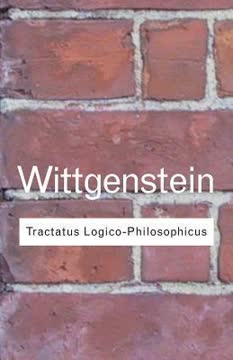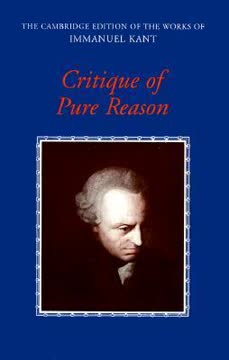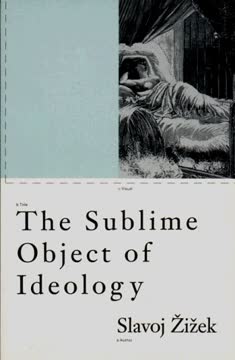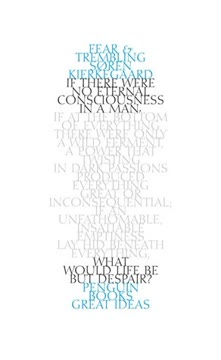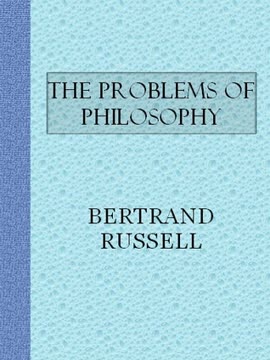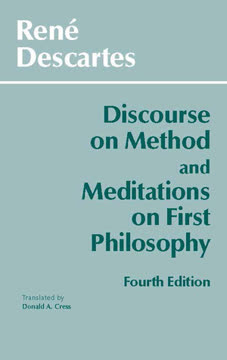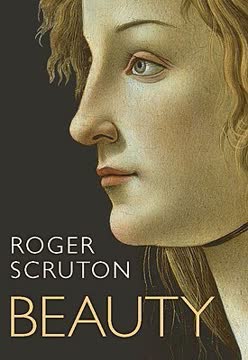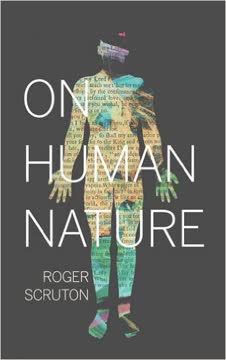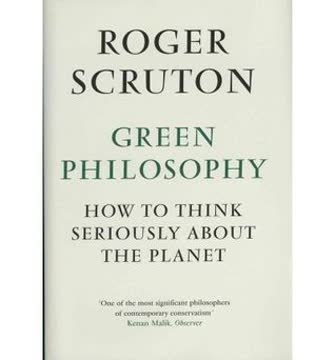Key Takeaways
1. Kant's Life: Duty and Routine Shaped His Philosophy
The greatest modern philosopher was moved by nothing more than by duty.
Disciplined life. Immanuel Kant's life, marked by unwavering dedication to duty and a meticulously structured routine, profoundly influenced his philosophical pursuits. Born in Königsberg in 1724, Kant's upbringing in a devout Pietist household instilled in him a deep sense of obligation and moral rectitude, which would later become central tenets of his ethical framework.
Academic pursuits. Despite facing financial constraints and physical challenges, Kant excelled in his academic endeavors, eventually securing a professorship at the University of Königsberg. His commitment to scholarship and teaching remained steadfast throughout his career, as he diligently lectured on a wide range of subjects, from mathematics and physics to metaphysics and logic.
Personal habits. Kant's daily routine, characterized by strict adherence to schedules and a preference for solitude, reflected his belief in the importance of self-discipline and intellectual rigor. While some criticized his lifestyle as rigid and detached, it provided him with the structure and focus necessary to develop his groundbreaking philosophical ideas.
2. Bridging Rationalism and Empiricism: Kant's Revolutionary Synthesis
Without sensibility no object would be given to us, without understanding no object would be thought.
Reconciling opposing views. Kant sought to reconcile the opposing schools of rationalism, championed by Leibniz, and empiricism, advocated by Hume, by proposing a synthesis that integrated elements of both. He argued that knowledge arises from the interaction between sensory experience and the inherent structures of the mind.
A priori knowledge. Kant introduced the concept of synthetic a priori knowledge, which refers to truths that are both independent of experience and informative about the world. He believed that mathematics and certain metaphysical principles fall into this category, providing a foundation for objective knowledge.
Transcendental idealism. Kant's transcendental idealism posits that our experience of the world is shaped by the categories of the understanding and the forms of intuition, such as space and time. While we can have knowledge of the world as it appears to us, we cannot access the "thing-in-itself" independently of our cognitive faculties.
3. The Transcendental Deduction: Establishing Objective Knowledge
The “I think” which can accompany all my perceptions.
Self-consciousness as the foundation. Kant's transcendental deduction begins with the premise of self-consciousness, arguing that the ability to recognize oneself as the subject of experience is a necessary condition for objective knowledge. He posited that the "I think" must accompany all our perceptions.
Categories of understanding. Kant identified a set of fundamental concepts, or categories, that structure our experience and make objective knowledge possible. These categories, such as substance, cause, and community, are not derived from experience but are inherent in the understanding itself.
Objective validity. Kant argued that the categories of the understanding have objective validity because they are presupposed in the very possibility of experience. In order to have self-conscious experience, we must inhabit a world that conforms to the categories, thereby establishing the objectivity of our knowledge.
4. The Logic of Illusion: Unmasking Metaphysical Fallacies
The pure concepts of the understanding can never admit of transcendental but always only of empirical employment.
Limits of pure reason. Kant critiqued the pretensions of rationalist metaphysics, arguing that attempts to gain knowledge of the "unconditioned" through pure reason alone inevitably lead to illusion and contradiction. He believed that reason must be constrained by the limits of experience.
Antinomies of pure reason. Kant identified several antinomies, or pairs of contradictory propositions, that arise when reason attempts to grasp the totality of the world. These antinomies, such as the question of whether the world has a beginning in time, demonstrate the inherent limitations of speculative metaphysics.
Regulative principles. While rejecting the constitutive use of metaphysical ideas, Kant argued that they can serve as regulative principles, guiding our inquiry and promoting the systematic investigation of nature. These ideas, such as the idea of a perfect creator, can inspire us to seek ever wider and simpler laws.
5. The Categorical Imperative: Grounding Morality in Reason
Ought implies can.
Freedom and morality. Kant's ethics is grounded in the concept of freedom, which he sees as a necessary condition for moral responsibility. He argued that the moral agent must be free to choose between different courses of action.
Hypothetical vs. categorical imperatives. Kant distinguished between hypothetical imperatives, which are conditional on our desires, and categorical imperatives, which are unconditional commands of reason. He argued that morality can be expressed only in categorical imperatives.
Formulations of the categorical imperative. Kant formulated the categorical imperative in several different ways, including the principle of universalizability, the principle of treating humanity as an end in itself, and the principle of autonomy. These formulations provide a framework for determining our moral duties.
6. Aesthetic Judgement: Finding Purpose and Harmony in Beauty
Beauty is that which pleases universally without [requiring a] concept.
Subjective universality. Kant explored the nature of aesthetic judgement, arguing that it involves a subjective experience of pleasure that is nevertheless postulated as universally valid. He sought to explain how we can claim that others ought to share our aesthetic appreciation.
Disinterested contemplation. Kant emphasized the importance of disinterested contemplation in aesthetic judgement, arguing that we must set aside our personal interests and desires in order to appreciate the beauty of an object. This disinterestedness allows us to experience the object as an end in itself.
Purposiveness without purpose. Kant introduced the concept of "purposiveness without purpose" to describe the way in which beautiful objects seem to exhibit design and order without serving any specific function. This purposiveness reflects a harmony between our cognitive faculties and the natural world.
7. Enlightenment and Law: Reconciling Freedom with Political Order
Every action is just [recht] if it or its maxim allows each person’s freedom of choice to coexist together with the freedom of everyone in accordance with a universal law.
Social contract. Kant used the idea of a social contract as a test for the legitimacy of laws. He argued that a law is just only if it is possible that a whole people could consent to it.
Human rights. Kant believed that all people have certain innate rights, including the right to freedom. He argued that these rights should be protected by law.
Republicanism. Kant advocated for a republican form of government, in which the people are represented in the legislature and laws are made in accordance with the general will. He believed that this form of government is most conducive to freedom and justice.
8. Kant's Enduring Legacy: Shaping Modern Thought
Two things fill the heart with ever renewed and increasing awe and reverence, the more often and the more steadily we meditate upon them: the starry firmament above and the moral law within.
Influence on subsequent philosophy. Kant's critical philosophy has had a profound and lasting influence on subsequent philosophical thought, shaping the development of metaphysics, ethics, aesthetics, and political philosophy. His ideas continue to be debated and reinterpreted by contemporary thinkers.
Emphasis on autonomy and reason. Kant's emphasis on autonomy, reason, and the importance of treating all persons as ends in themselves has resonated with generations of philosophers and activists. His moral and political philosophy provides a powerful framework for defending human rights and promoting social justice.
Critique of dogmatism and skepticism. Kant's critical method offers a valuable antidote to both dogmatism and skepticism, encouraging us to question our assumptions and to seek a balanced and nuanced understanding of the world. His legacy lies in his commitment to intellectual rigor, moral responsibility, and the pursuit of enlightenment.
Last updated:
FAQ
What is "Kant: A Very Short Introduction" by Roger Scruton about?
- Concise overview of Kant: The book provides a clear and accessible introduction to the life, works, and philosophy of Immanuel Kant, one of the most influential modern philosophers.
- Explains Kant’s major works: It covers Kant’s key texts, especially the Critique of Pure Reason, and explains their significance in the context of philosophy.
- Focus on core concepts: The book unpacks Kant’s central ideas, such as transcendental idealism, the categorical imperative, and the distinction between phenomena and noumena.
- Modern relevance: Scruton discusses how Kant’s ideas have shaped modern thought in ethics, aesthetics, politics, and epistemology.
Why should I read "Kant: A Very Short Introduction" by Roger Scruton?
- Accessible entry point: The book is designed for readers with little or no background in philosophy, making Kant’s notoriously difficult ideas more approachable.
- Expert guidance: Roger Scruton is a respected philosopher who presents Kant’s thought in a modern idiom, clarifying complex arguments and controversies.
- Broad coverage: It covers not just Kant’s metaphysics, but also his moral, aesthetic, and political philosophy, showing the breadth of his influence.
- Contextual understanding: The book situates Kant within the Enlightenment and explains his impact on subsequent philosophical developments.
What are the key takeaways from "Kant: A Very Short Introduction"?
- Limits of human understanding: Kant sought to define the boundaries of what we can know, arguing that knowledge is shaped by both experience and the mind’s innate structures.
- Synthetic a priori knowledge: Kant introduced the idea that some truths are both informative and knowable independently of experience, a cornerstone of his philosophy.
- Moral autonomy: Kant’s ethics centers on the autonomy of the will and the categorical imperative, emphasizing duty and universal moral law.
- Transcendental idealism: Kant’s view that we can only know things as they appear to us (phenomena), not as they are in themselves (noumena), is fundamental to his system.
Who was Immanuel Kant, according to Roger Scruton’s account?
- Background and upbringing: Kant was born in Königsberg in 1724 to a modest family and was influenced by the pietist movement, which emphasized duty and conscience.
- Academic life: He spent his entire life in Königsberg, eventually becoming a professor and gaining fame for his lectures and writings.
- Personal character: Kant was known for his disciplined, routine lifestyle, love of company, and commitment to truth and duty over personal ambition.
- Intellectual legacy: Despite a late start, Kant’s major works revolutionized philosophy and established him as a central figure in the Enlightenment.
What is Kant’s "transcendental idealism" as explained in "Kant: A Very Short Introduction"?
- Knowledge shaped by mind: Kant argued that our experience of the world is structured by the mind’s innate categories and forms, such as space and time.
- Phenomena vs. noumena: We can know only appearances (phenomena), not things as they are in themselves (noumena), because our knowledge is always mediated by our faculties.
- Limits of reason: Kant’s philosophy sets boundaries on what reason can achieve, rejecting both pure empiricism and pure rationalism.
- Objective knowledge possible: While we cannot know the absolute nature of reality, we can have objective knowledge of the world as it appears to us.
How does Roger Scruton explain Kant’s "categorical imperative" and its role in moral philosophy?
- Universal moral law: The categorical imperative is a principle that commands actions which can be universally willed, forming the basis of Kant’s ethics.
- Autonomy and duty: Moral actions are those done from duty, not inclination, and stem from the autonomy of the rational will.
- Respect for persons: Kant’s ethics insists on treating humanity, in oneself and others, always as an end and never merely as a means.
- Foundation of rights: The categorical imperative underpins concepts like justice, rights, and the dignity of persons in both moral and political contexts.
What is Kant’s "Copernican Revolution" in philosophy, as described by Scruton?
- Shift in perspective: Kant proposed that instead of our knowledge conforming to objects, objects conform to the ways our mind structures experience.
- Active role of the subject: The mind actively organizes sensory data using categories and forms, rather than passively receiving information.
- Implications for knowledge: This revolution explains how synthetic a priori knowledge is possible and why certain features of experience (like causality) are necessary.
- Resolution of prior debates: Kant’s approach mediates between rationalism and empiricism, offering a new foundation for metaphysics and science.
How does "Kant: A Very Short Introduction" address the analytic/synthetic and a priori/a posteriori distinctions?
- Analytic vs. synthetic: Analytic truths are true by definition (e.g., "All bachelors are unmarried"), while synthetic truths add new information (e.g., "All bachelors are unhappy").
- A priori vs. a posteriori: A priori knowledge is independent of experience (e.g., mathematics), while a posteriori knowledge depends on experience (e.g., "The sky is blue").
- Synthetic a priori knowledge: Kant’s key innovation is the idea that some truths (like those in mathematics and metaphysics) are both synthetic and a priori.
- Philosophical significance: This distinction is central to Kant’s project of explaining how objective, necessary knowledge is possible.
What is the "transcendental deduction" in Kant’s philosophy, and how does Scruton explain it?
- Justifying categories: The transcendental deduction is Kant’s argument for why the mind’s categories (like causality and substance) must apply to all possible experience.
- Subjective and objective sides: Scruton distinguishes between the subjective deduction (how the mind must think) and the objective deduction (how the world must be for experience to occur).
- Unity of apperception: The argument relies on the idea that self-consciousness requires a unified, objective world structured by these categories.
- Foundation for objectivity: The deduction aims to show that objective knowledge is possible because the conditions for experience are also the conditions for objects.
How does Roger Scruton present Kant’s views on aesthetics and the experience of beauty?
- Aesthetic judgement: Kant sees judgments of beauty as subjective yet claiming universal validity, leading to the "antinomy of taste."
- Disinterested pleasure: True aesthetic appreciation involves a disinterested pleasure, free from personal desires or practical concerns.
- Harmony of faculties: The experience of beauty arises from a harmonious "free play" between imagination and understanding.
- Moral and metaphysical hints: Aesthetic experience provides a unique insight into the harmony between mind and world, and hints at the transcendental.
What is Kant’s political philosophy according to "Kant: A Very Short Introduction"?
- Republican ideal: Kant advocates for a republican form of government based on the autonomy and equality of citizens.
- Social contract as regulative: The social contract is not a historical fact but a test of legitimacy—laws must be such that all could consent to them.
- Natural law and rights: Kant grounds law and justice in the categorical imperative, emphasizing freedom, rights, and the dignity of persons.
- Perpetual peace: He envisions a federation of republics and international law as the path to lasting peace and justice.
What are the best quotes from "Kant: A Very Short Introduction" and what do they mean?
- "Two things fill the heart with ever renewed and increasing awe and reverence, the more often and the more steadily we meditate upon them: the starry firmament above and the moral law within."
- This quote, from Kant’s Critique of Practical Reason, encapsulates his sense of wonder at both the natural world and the moral law, highlighting the dual focus of his philosophy.
- "Thoughts without content are empty; intuitions without concepts are blind."
- Kant’s famous dictum expresses the interdependence of sensory experience and conceptual understanding in knowledge.
- "Act only on that maxim which you can at the same time will as a universal law."
- This is the first formulation of the categorical imperative, emphasizing the universality and rationality required for moral action.
- "The autonomy of the will is the sole principle of all moral laws."
- Kant’s ethics is grounded in the idea that moral agents are self-legislating, free, and bound by reason alone.
- "That whereof we cannot speak, we must consign to silence."
- Quoted by Scruton from Wittgenstein, this echoes Kant’s own view that philosophy must recognize the limits of reason and refrain from speculation beyond them.
Review Summary
Kant: A Very Short Introduction receives generally positive reviews for making Kant's complex philosophy accessible, though some still find it challenging. Readers appreciate Scruton's clear explanations and contextualization of Kant's ideas. The book covers Kant's major works and concepts, including his critiques, ethics, and aesthetics. While some struggle with the density of the material, many find it a valuable introduction to Kant's thought. Critics note that prior philosophical knowledge may be helpful for full comprehension.
Very Short Introductions Series Series
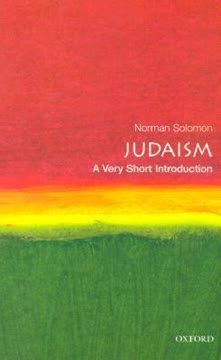
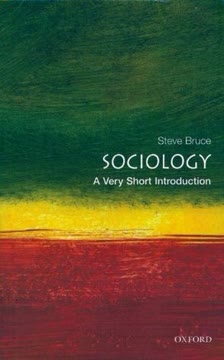
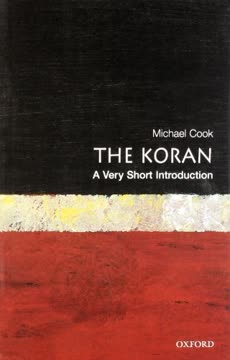
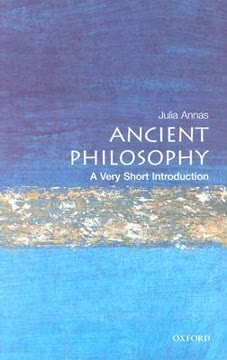
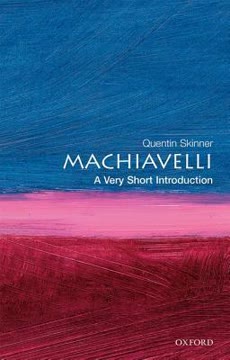
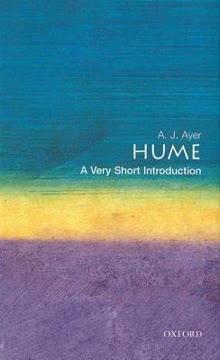

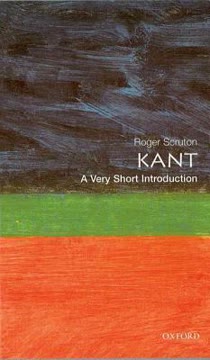
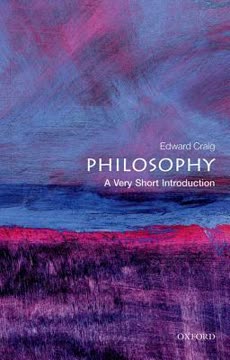
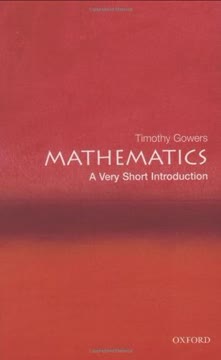
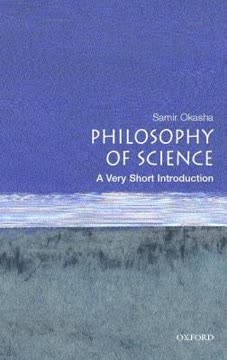
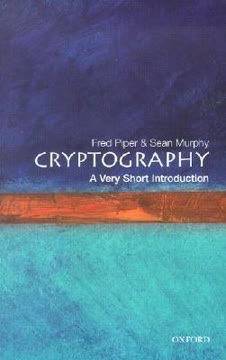
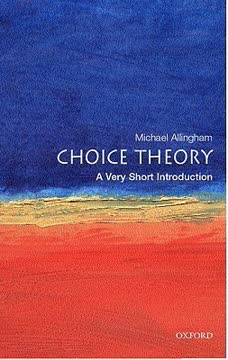
Similar Books
Download PDF
Download EPUB
.epub digital book format is ideal for reading ebooks on phones, tablets, and e-readers.
